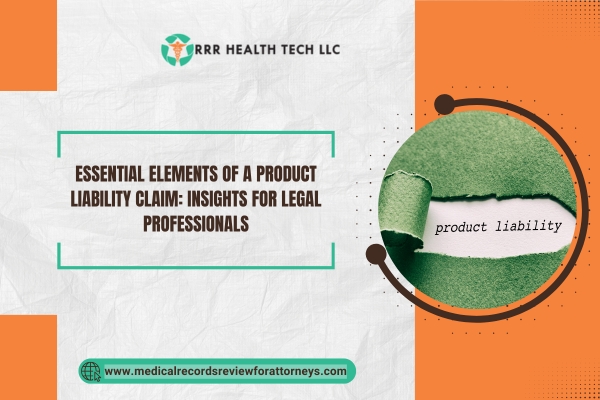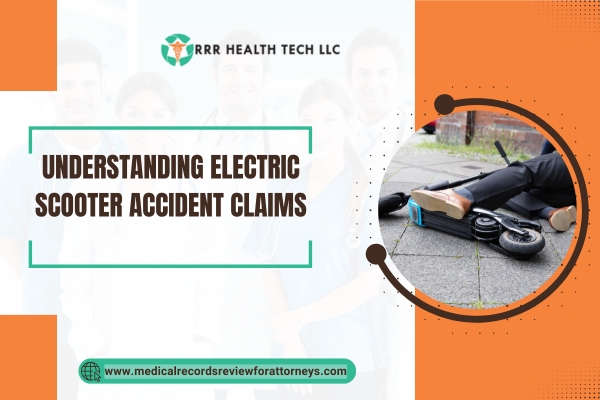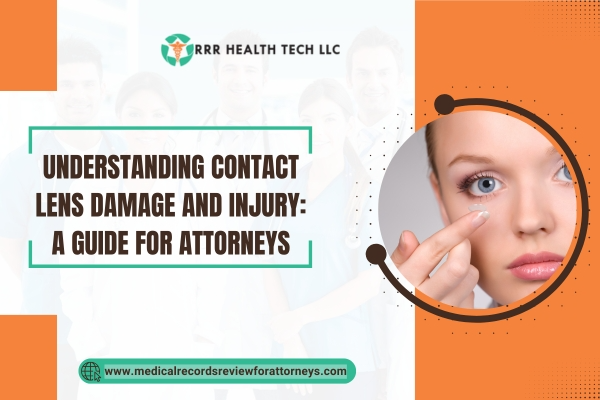
Introduction
Injury to person claims is central in law and they also have other complex interrelated legal and medical issues. Being a medical records reviewing company, we have a vital role in aiding lawyers throughout the United States by analyzing such complex matters. This paper focuses on the most basic aspects of a product liability claim, its medical aspects, and how our services can augment legal practices.
Key Elements of a Product Liability Claim
1. Defective Product
• Definition: A product is deemed defective if it is considered to be unreasonably dangerous because of particular design issues, manufacturing problems, or lack of proper safeguards.
• Types of Defects
• Design Defects: There are risks within the design of the product, which is supposed to be safe.
• Manufacturing Defects: There are mistakes associated with the production phase.
• Marketing Defects: Inadequate or no guidelines for the use of the device.
2. Causation
• Direct Link: The claimant has to prove that the defect is the actual reason of the injury sustained.
• Proximate Cause: It has to be proved that the injury was actually caused by the defect, which was not beyond the boundaries of reasonable assumption.
3. Injury or Damage
• Physical Injury: Actual recorded injuries sustained by the plaintiff such as treatment methods employed as evident from the medical records.
• Loss of Earnings: The injury’s financial aspects concerning medical and lost income.
4. Breach of Warranty
• Oral Warranty: The manufacturer’s promise regarding the product’s safety is the basis of a claim.
• Performance Warranty: The claim regarding the product’s purpose or fit for intended use.
The Role of Medical Records Review in Product Liability Claims
Importance for Attorneys
- Thorough Documentation: The medical records serve as an exemplary evidence of the injuries and their linkage with the defected product.
- Identifying Gaps: Cases can lose evidence for information weaker the overall impact of the case. Our review service allows for an analysis of information gaps
Our Services
- Comprehensive Record Analysis: We comprehensively study medical files to make certain relevant gaps do not get overlooked.
- Expert Testimony Preparation: Helping attorneys with the complexities of medical jargon and its relevance to their cases.
Common Challenges in Product Liability Claims
Proving Defectiveness
The Issue: It may be tough to prove defectiveness of the product, especially when dealing with more than one party.
Ways to Fix: Expert witnesses can assist on points concerning product design and safety regulations.
Establishing Causation
The Issue: A direct connection between the defect and the injury must be proved, and this is usually done with the aid of medical records, which can be labor intensive.
• Solution: Ensure a clear connection can be established through a detailed narrative review of the patient’s medical records.
Dealing with Insurers
• Challenge: The insurance companies may refuse the claim or settle for a low amount without paying attention to the details of the case.
• Solution: Just form a solid case and use detailed medical documents to prove a point.
Case Studies
Case Study 1: Defective Kitchen Appliance
Overview: A family suffered burns from a malfunctioning toaster.
Challenges:
• Proving the misuse of the device as a reason for burns and not the defectiveness of the toaster.
• Demonstrating the severity of the burns injury.
Solution:
• Detailed the medical records of the patients, including the treatment notes, and reviewed for burn injuries.
• Designed a testimony from an appliance safety expert concerning the defective design.
Compensation: Pain and suffering, alongside medical expenses, were compensated with the family.
Case Example 2: Defective Hip Device
Overview: A patient suffered from issues resulting from a broken implant into the hip region.
Challenges:
• The sponsor of the device was blamed for the problem but establishing a relationship proved to be a challenge.
• Complex language used in the records made it difficult for the layman to understand.
Solution:
• Provided a timeline of the complications by reviewing all the associated surgical and follow up medical records.
• Set forth opinions through orthopedic specialists and formulated a strategy with the expert witness.
Compensation: Additional surgeries and rehabilitation treatment was covered in the damages awarded to the patient.
Conclusion
To properly represent an injured client, one must comprehend the aspects entailed in a product liability claim. With the help of our medical record review services, attorneys can construct more robust cases for their clients to win their settlement claims.


